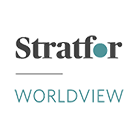However intractable the country's long-term economic problems are, Russia or Cuba – a security ally to Caracas — may eventually provide some relief for Venezuela's immediate political problems through an offer of political asylum. Venezuela's deeply unpopular president, Nicolas Maduro, risks losing his office in an election scheduled for November 2018. The country’s ruling elites see this potential loss of power as an unacceptable risk to their political privileges and personal safety. In response, Maduro and political and military elites are pushing to rewrite the country’s constitution and purge dissenters from their ranks in an effort to cling to power. However, reports from Stratfor sources indicate that Maduro has also explored seeking political asylum. For more than a year, Stratfor has received persistent reports that he has considered asking for refuge in Russia or Cuba. He may have sweetened his request to Russia with offers of mineral concessions. But even if Maduro eventually secures an exile deal with Russia or Cuba, other military and political officials at risk of arrest in Venezuela or extradition to the United States will rely on the constitutional rewrite to improve their chances of political survival.
The talks on asylum appear to be part of larger discussions in which the interests of the United States, Cuba, Russia and China converge. According to a Stratfor source, Cuba is a key part of indirect talks between Russia and the United States on Venezuela. The government of Raul Castro conveys Russian and Chinese positions (as well as Maduro's) to the United States. And former Spanish prime minister and mediator Jose Luis Rodriguez Zapatero represents U.S. interests. Maduro ordered the release of opposition politician Leopoldo Lopez from prison on July 8 after months of negotiations involving Cuba and Zapatero. His decision, an apparent concession to the United States and the opposition, did not include input from key Venezuelan leaders like Vice President Tareck el Aissami or Diosdado Cabello, leader of the ruling party. Lopez's transfer to house arrest – a minor move compared to the larger forces affecting Venezuela — was likely intended to soften street protests. Lopez's release could also help Cuba curry favor with Venezuela's opposition. Given Cuba's reliance on access to Venezuelan fuel, Havana may hope that Lopez's release will help it curry favor with Venezuela’s opposition in case the Maduro government falls and the opposition finds itself in control.
For Moscow, its desire for a peaceful resolution in Venezuela likely lies in its vested interest in the country's resources. Russian oil company Rosneft owns stakes in joint ventures with the Venezuelan government in the Orinoco Belt. Separate reports from Stratfor sources suggest that the Russian government would like additional mineral concessions, although their nature and location are unclear. And an asylum deal may also have strategic implications. Brokering the departure of Maduro may give the Russians leverage in their broader negotiations with the United States on other contentious topics, such as Syria, Ukraine or the European borderlands. On the other hand, China is willing to work with any government in Caracas, as long as it respects China’s investments and repays loans made to the Venezuelan government, according to a source.
In contrast, specific U.S. interests in Venezuela are far clearer than those of the Russians. Although Venezuela is a secondary issue for Washington, a peaceful resolution is better than a violent confrontation. The United States would also like to see timely, fair elections in Venezuela, and the drug trafficking conduit through the country is also a continuing concern. However, Washington has few policy tools with which it can directly influence the political confrontation in the country. Aside from indirect discussions with Venezuela, the administration of U.S. President Donald Trump appears to be relying on the limited avenues its predecessors used. In February 2017 the Department of the Treasury sanctioned Venezuelan Vice President Tareck El Aissami for his suspected role in cocaine trafficking to the United States. Additional sanctions may be implemented against individual Venezuelan political leaders. The Trump administration is still deciding whether to adopt a more aggressive stance, and the possibility of sanctions against the oil sector have been floated as a means of pressuring the government to hold free elections. The White House has also moved to tighten sanctions on Cuban entities controlled by its armed forces. In the near term, that move will drive the Cubans to continue to support the Maduro government.
A negotiated transition from the Maduro government — in which power passes to the vice president — could temporarily reduce confrontation between the opposition and the government. However, it is no guarantee of long-term political stability. According to a Stratfor source, the Russian or Cuban governments would be willing to accept the president and his wife, Cilia Flores, but not other political figures. Cuba may be willing to take in Maduro and his entourage, but large numbers of Venezuelan political figures could become a liability, given the potential for U.S. demands for extradition. In the absence of a political solution that protects their interests, vulnerable officials, who include El Aissami, Cabello, Interior Minister Nestor Reverol and members of the Francisco de Miranda Front, will keep pushing for an assembly to rewrite the constitution. And barring a drastic event, such as a successful military coup, this drive will move forward and remain a trigger for unrest. So, despite U.S. and Russian hopes, there is no easy way out of the turmoil in Venezuela.

